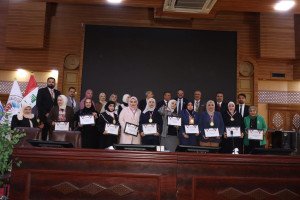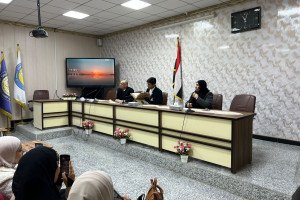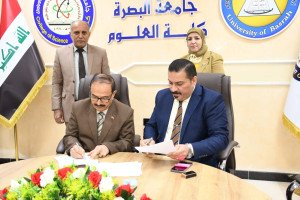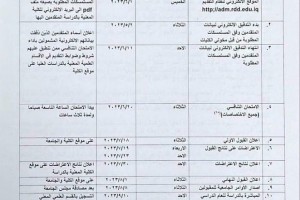
The College of Science at the University of Basrah organized a seminar entitled (Exploitation of oil reservoir microorganisms in produced nanoparticales (NPS)) by the PhD student Hasan Ghali Abdulhasan.
The study aims to exploitation the microorganisms present in oil reservoirs in the synthesis of the nanoparticles, and included a description of the oil reservoir environments, and microorganisms in which they are found and their ability to produce nanoparticles. Oil reservoirs are extreme environments for microbial life characterized by high toxicity, hydrophobicity and low water activity, as well as high temperature, salinity, and pressure , but they provide a broad range of niches for a multitude of bacteria and archaea, such as sulfate-, nitrate-, and iron-reducers, fermenters, acetogens, and methanogens. Microbes spread inside oil reservoirs in an area known as the oil-water transition zone (OWTZ), which is located between two phases, the water phase and the oil phase, and are attached to the rocks in a thin water film or in dispensed water droplets amidst the oil phase. The majority of these microbes are facultatively anaerobic or anaerobic, resistant to antimicrobial materials and unsuitable environmental conditions, and have different metabolic pathways that enable them to produce various compounds and nanoparticles. The ability of these microbes to survive and tolerate toxic metals and harsh environmental conditions is due to special resistance mechanisms that lead to the synthesis of nanoparticles. These mechanisms include efflux pumps, reducing agents such as proteins and enzymes, heavy metal detoxification, precipitation, bioaccumulation, adsorption, and biotransformation.







